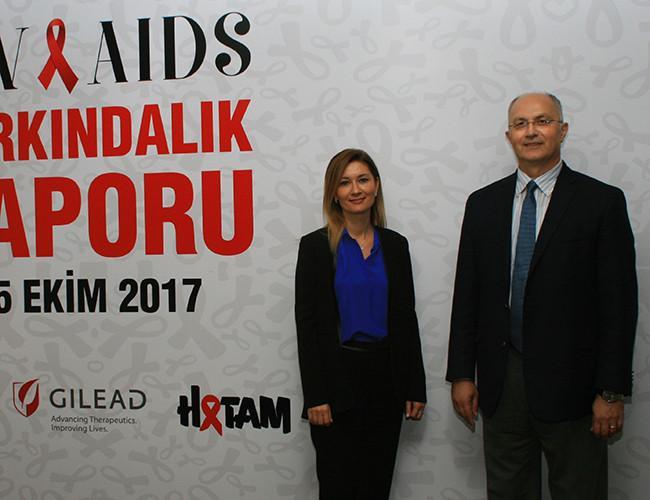
The number of HIV positive patients has increased by 465 percent in the last 10 years in Turkey, reaching 14,695, according to Health Ministry figures.
Prof. Dr. Serhat Ünal, from Ankara’s Hacettepe University, told daily Hürriyet that Turkey has seen the biggest increase in the number of HIV patients over the last decade.
“HIV is generally decreasing around the world. But Turkey is one of the exceptions,” said Ünal.
“The increase in Belarus, Ukraine and Russia to our north, Eastern Europe to our west and Arab countries to our south was around 200 percent. So Turkey is the one that has experienced the most increase in HIV patients in the world,” he added.
Some 22 percent of diagnosed HIV positive patients in Turkey are women. The 25-49 age group makes up 49 percent of the cases.
Some 2,220 patients, corresponding to 15 percent of all cases, are foreign nationals living in Turkey, and by the end of 2028 the overall number of HIV patients is forecast to increase to over 39,000 in the country.
Education given in schools, awareness on the issue and proper treatment are the most important steps in “controlling” the illness, according to Ünal.
Meanwhile, a survey conducted jointly by Ankara’s Başkent University, the Hacettepe AIDS Treatment and Research Center (HATAM), and the U.S.-based biopharmaceutical company Gilead Sciences on 21,347 people in Turkey showed that 77.3 percent of interviewees “do not have any information” on the illness.
Prof. Dr. Berna Simten Malhan from Başkent University provided statistics on the interviewees who took part in the survey. She said 46 percent of the interviewees were university degree graduates, 40 percent were middle school or high school graduates, and 18 percent were elementary school graduates. The average age of the interviewees was 32.9, with the number of females amounting to 52 percent.
Some 25.7 percent of the interviewees were not aware that HIV spread via the blood and 22.5 percent did not know that it can be transferred through sexual activities.
Some 34.8 percent, meanwhile, thought the virus can spread via hand shaking or embracing, while 59.1 percent thought it can be spread via kissing. Additionally, 75 percent did not know that HIV patients can continue a normal life while having the virus.
Around half of the interviewees also mistakenly thought that all people wanting to take an HIV test in Turkey have to present their IDs.